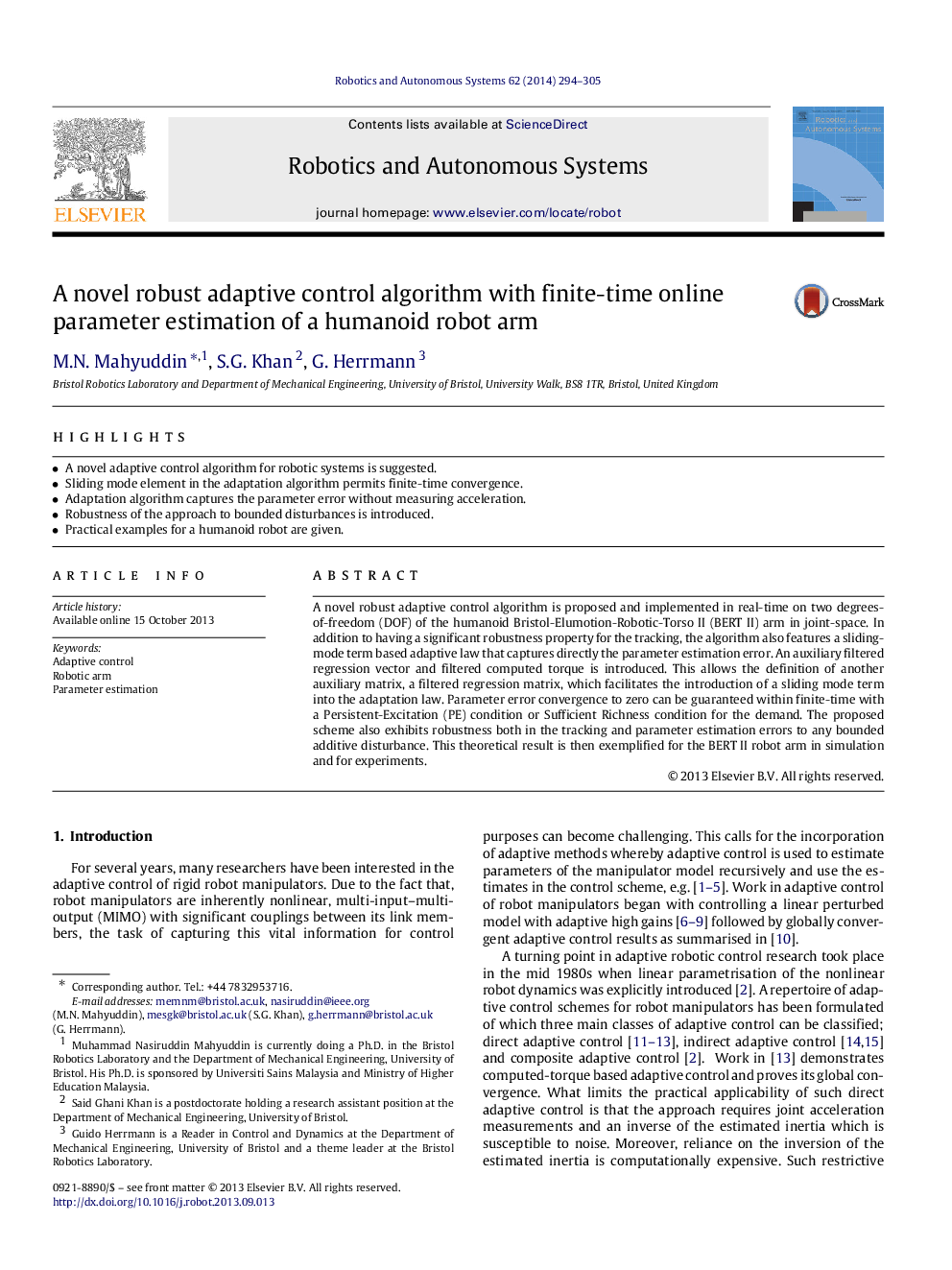| Article ID | Journal | Published Year | Pages | File Type |
|---|---|---|---|---|
| 412557 | Robotics and Autonomous Systems | 2014 | 12 Pages |
•A novel adaptive control algorithm for robotic systems is suggested.•Sliding mode element in the adaptation algorithm permits finite-time convergence.•Adaptation algorithm captures the parameter error without measuring acceleration.•Robustness of the approach to bounded disturbances is introduced.•Practical examples for a humanoid robot are given.
A novel robust adaptive control algorithm is proposed and implemented in real-time on two degrees-of-freedom (DOF) of the humanoid Bristol-Elumotion-Robotic-Torso II (BERT II) arm in joint-space. In addition to having a significant robustness property for the tracking, the algorithm also features a sliding-mode term based adaptive law that captures directly the parameter estimation error. An auxiliary filtered regression vector and filtered computed torque is introduced. This allows the definition of another auxiliary matrix, a filtered regression matrix, which facilitates the introduction of a sliding mode term into the adaptation law. Parameter error convergence to zero can be guaranteed within finite-time with a Persistent-Excitation (PE) condition or Sufficient Richness condition for the demand. The proposed scheme also exhibits robustness both in the tracking and parameter estimation errors to any bounded additive disturbance. This theoretical result is then exemplified for the BERT II robot arm in simulation and for experiments.
